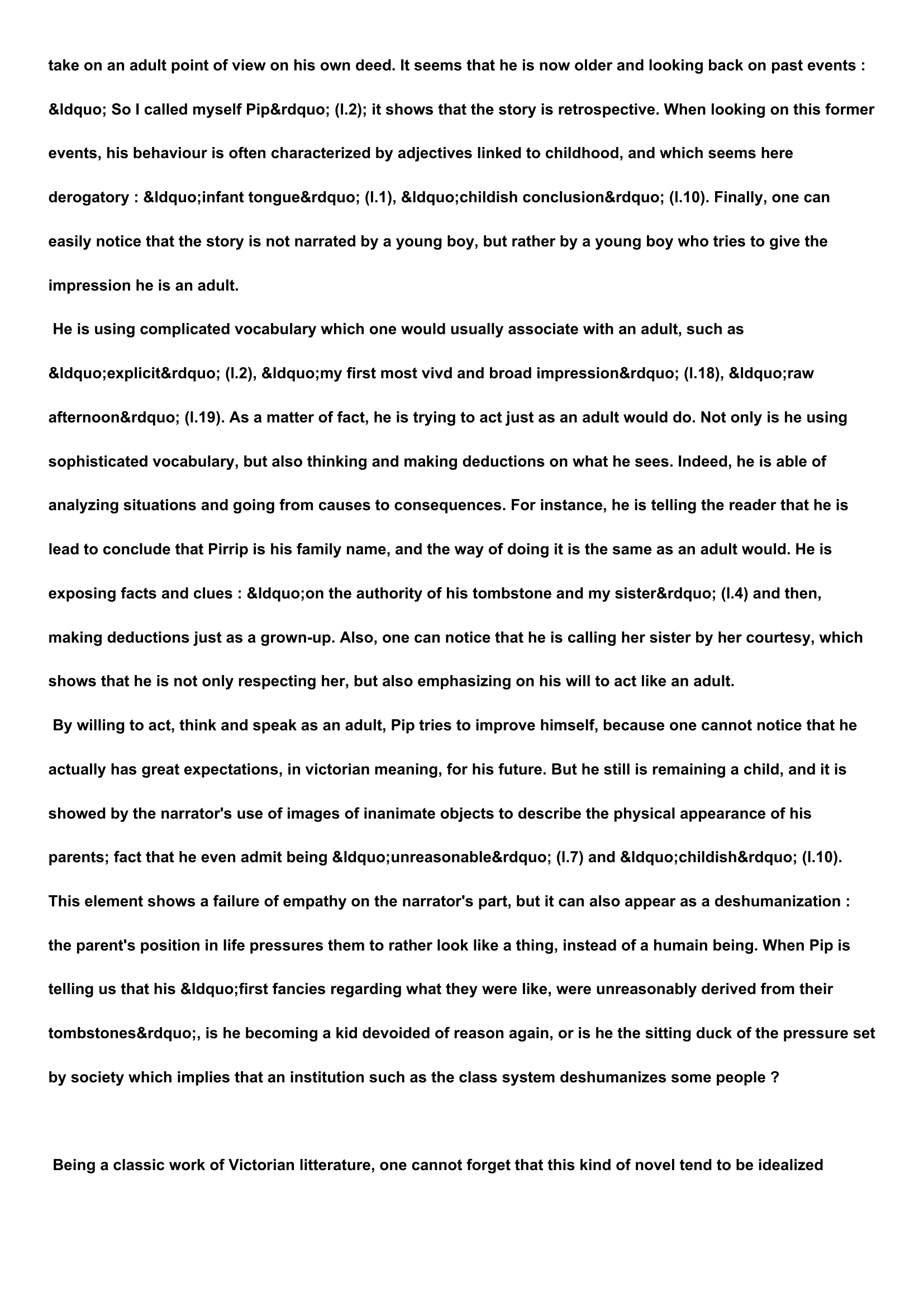Commentaire the great expectations
Publié le 01/04/2014

Extrait du document
«
take on an adult point of view on his own deed.
It seems that he is now older and looking back on past events :
“ So I called myself Pip” (l.2); it shows that the story is retrospective.
When looking on this former
events, his behaviour is often characterized by adjectives linked to childhood, and which seems here
derogatory : “infant tongue” (l.1), “childish conclusion” (l.10).
Finally, one can
easily notice that the story is not narrated by a young boy, but rather by a young boy who tries to give the
impression he is an adult.
He is using complicated vocabulary which one would usually associate with an adult, such as
“explicit” (l.2), “my first most vivd and broad impression” (l.18), “raw
afternoon” (l.19).
As a matter of fact, he is trying to act just as an adult would do.
Not only is he using
sophisticated vocabulary, but also thinking and making deductions on what he sees.
Indeed, he is able of
analyzing situations and going from causes to consequences.
For instance, he is telling the reader that he is
lead to conclude that Pirrip is his family name, and the way of doing it is the same as an adult would.
He is
exposing facts and clues : “on the authority of his tombstone and my sister” (l.4) and then,
making deductions just as a grown-up.
Also, one can notice that he is calling her sister by her courtesy, which
shows that he is not only respecting her, but also emphasizing on his will to act like an adult.
By willing to act, think and speak as an adult, Pip tries to improve himself, because one cannot notice that he
actually has great expectations, in victorian meaning, for his future.
But he still is remaining a child, and it is
showed by the narrator's use of images of inanimate objects to describe the physical appearance of his
parents; fact that he even admit being “unreasonable” (l.7) and “childish” (l.10).
This element shows a failure of empathy on the narrator's part, but it can also appear as a deshumanization :
the parent's position in life pressures them to rather look like a thing, instead of a humain being.
When Pip is
telling us that his “first fancies regarding what they were like, were unreasonably derived from their
tombstones”, is he becoming a kid devoided of reason again, or is he the sitting duck of the pressure set
by society which implies that an institution such as the class system deshumanizes some people ?
Being a classic work of Victorian litterature, one cannot forget that this kind of novel tend to be idealized.
»
↓↓↓ APERÇU DU DOCUMENT ↓↓↓
Liens utiles
- Commentaire sur l'ouvrage de Quobna Ottobah Cugoano : Thoughts and Sentiments on the Evil of Slavery
- GRANDES ESPÉRANCES (Les) [Great Expectations ].
- GRANDE TRADITION (La) [The Great Tradition]. Frank Raymond Leavis (résumé)
- GRANDE ÉPOQUE (La) [The Great Days]. (résumé) John Dos Passos
- GRANDE BARRIÈRE (La) [The Great Divide].

































